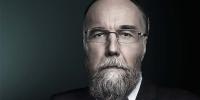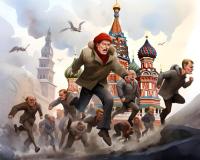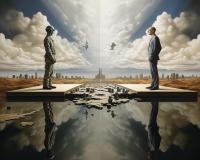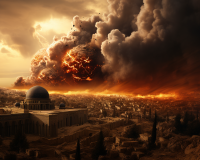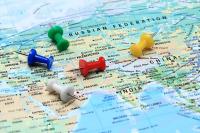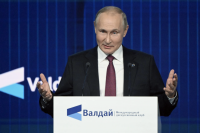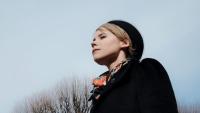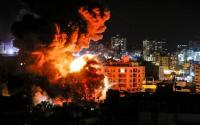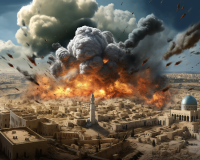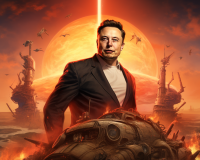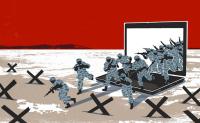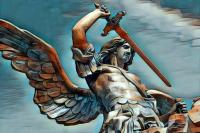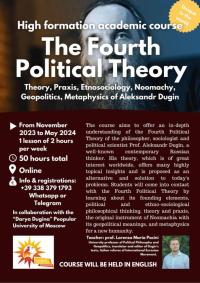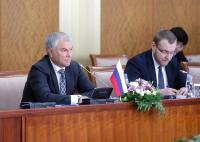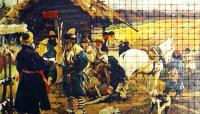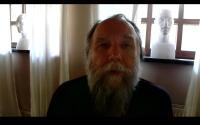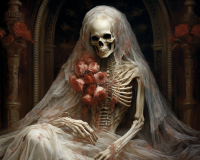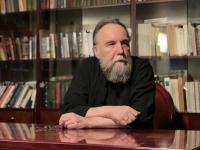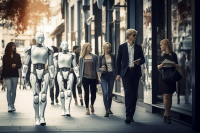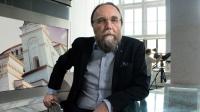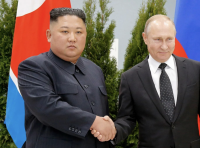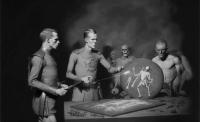End the Liberals: The People’s Hope for Change
Certainly most thinking individuals would agree that in the 1990s, the Russian state was taken over by adversaries who imposed external control over it – over our entire society. Its overarching name is liberalism. Not some ‘bad liberalism’, ‘distorted liberalism’, or ‘pseudo-liberalism’, but simply liberalism. No other kind of liberalism exists. Russian liberals became nodes in this occupation network.
The Significance of Heidegger and His History of Philosophy for Russia — Part 1
The metaphysics of information warfare
Middle East: the eschatological scenario
The Geopolitics of the Caucasus
Empires as Civilisations
“We Live in the Era of the End”: An Eternally Relevant Interview with Daria Dugina
The West Is Not ‘Judeo-Christian’
The escalation of hostilities between Israel and Palestine undoubtedly unifies the Islamic world. Western conservatives once again invoke the defence of a ‘Judeo-Christian civilisation’ in the face of Muslims – the radical ideology of Hamas gives them a convenient pretext. Yet, a society deeply rooted in atheism, materialism, and the legalisation of various perversions, having long abandoned theology and traditional values, can neither be considered Christian nor Jewish.
Storm of Al-Aqsa: Has the Middle East Erupted?
On 7 October 2023, the Palestinian Hamas movement commenced military actions against Israel. Israeli towns and settlements bordering the Gaza Strip were attacked. Hamas’ military wing declared that, during the operation, it had struck over fifty Israeli military positions and captured thirty-five Israeli soldiers and settlers. Israel’s defence minister stated that the Hamas movement had declared war on his nation.
The multipolar wave
The Pentagon’s new cyber strategy
On September 12 of this year, 2023, the Pentagon published an update of its cyber strategy and released its main points in a 15-page text. The rest of the document is classified. It is known that this fourth iteration of the Pentagon’s strategy implements the priorities of the National Security Strategy, the National Defense Strategy for 2022 and the National Cyber Security Strategy for 2023. The text replaces the Department of Defense’s cyber strategy for 2018 and is designed to “establish a new strategic direction for that ministry.”
For a New Middle Ages: Against Western Decadence
High Formation academic course: The Fourth Political Theory
A Decisive Turn in the Special Military Operation
Foundational Elements of Ethnosociology
Speech by Alexander Dugin at the European Conference on Multipolarity
We are witnessing now very important term, very important shift, paradigma’s shift - the global balance of powers, and I think, that the last meeting of BRICS countries with acceptance of new members it is a point of no return, it is something really historic, because what we see now in a world with this new structure of BRICS.
Breaking with the civilisation of death
We must do a thought experiment and imagine: what else - other than a nuclear attack - could the West do to us that is at war with us? What sanctions to impose? Who to expel? How to humiliate us? Kick us out of where? Deprive us of what? (We are not considering a nuclear attack, because they won't do it, and if they do, it won't matter, because we will do it too).
Alexander Dugin on Postmodernism
Alexander Dugin on Postmodernism
Moya Semya interviews Alexander Dugin
'A true intellectual, a man for whom his thoughts are more important than his physical existence': this is how they write about the Russian thinker Aleksandr Dugin, the Western press calls the philosopher 'Putin's mentor', 'the brain of the Kremlin', 'the ideological foundation of the SMO'. To destroy him, terrorists blew up Dugin's daughter Daria a year ago. What did she die for and what ideas does Dugin himself support? Interview by Marina Hakimova-Gatzemeyer.
ALTERNATIVE POSTMODERNISM: AN UNNAMED PHENOMENON
Some important aspects of postmodernity should be clarified. It is not a complete phenomenon, and although it was the postmodernists (in particular Derrida) who introduced the notion of 'deconstruction' (based, however, on Heidegger's notion of die Destruktion in Sein und Zeit), Postmodernity itself can be deconstructed, and not necessarily in the postmodern style.
Alexander Dugin: "Satanism is putting matter before spirit"
The greatness of Juche, rogue states and greater humanity
Russia's rapprochement with the DPRK is a wonderful initiative. It was the meetings and negotiations between Russian President Vladimir Putin and Kim Jong-un, the hereditary head of the DPRK belonging to the sunny Kim dynasty, that caused a stir at the WEF. The West commented: stop this rapprochement at all costs, ban any movement of Russia and North Korea towards each other.
All-out war
The UAV attack on Russian cities by the terrorist forces of the West (Ukraine is increasingly in the shadow of the war waged against us by NATO) was particularly intense tonight. The voices have finally fallen silent: how come? Who didn't keep watch? We should have watched better! Now everyone is beginning to wonder what to do next.

